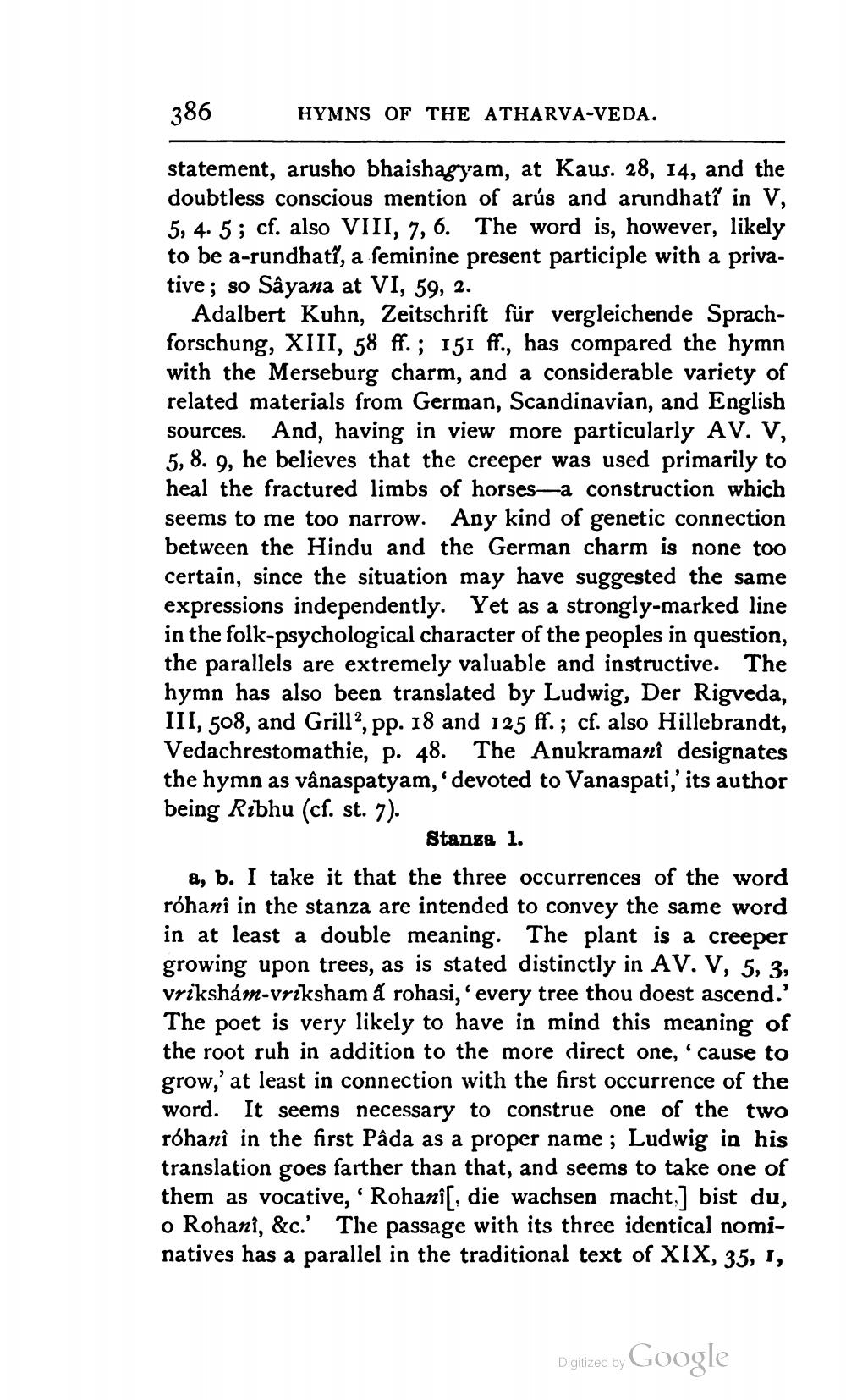________________
386
HYMNS OF THE ATHARVA-VEDA.
statement, arusho bhaishagyam, at Kaus. 28, 14, and the doubtless conscious mention of arús and arundhati in V, 5, 4. 5 ; cf. also VIII, 7, 6. The word is, however, likely to be a-rundhati, a feminine present participle with a privative; so Sâyana at VI, 59, 2.
Adalbert Kuhn, Zeitschrift für vergleichende Sprachforschung, XIII, 58 ff. ; 151 ff., has compared the hymn with the Merseburg charm, and a considerable variety of related materials from German, Scandinavian, and English sources. And, having in view more particularly AV. V, 5,8. 9, he believes that the creeper was used primarily to heal the fractured limbs of horses—a construction which seems to me too narrow. Any kind of genetic connection between the Hindu and the German charm is none too certain, since the situation may have suggested the same expressions independently. Yet as a strongly-marked line in the folk-psychological character of the peoples in question, the parallels are extremely valuable and instructive. The hymn has also been translated by Ludwig, Der Rigveda, III, 508, and Grill?, pp. 18 and 125 ff.; cf. also Hillebrandt, Vedachrestomathie, p. 48. The Anukramanî designates the hymn as vânaspatyam, devoted to Vanaspati,' its author being Ribhu (cf. st. 7).
Stanse 1. a, b. I take it that the three occurrences of the word róhanî in the stanza are intended to convey the same word in at least a double meaning. The plant is a creeper growing upon trees, as is stated distinctly in AV. V, 5, 3, vrikshám-vriksham á rohasi,' every tree thou doest ascend.' The poet is very likely to have in mind this meaning of the root ruh in addition to the more direct one, 'cause to grow,' at least in connection with the first occurrence of the word. It seems necessary to construe one of the two róhanî in the first Pâda as a proper name ; Ludwig in his translation goes farther than that, and seems to take one of them as vocative, 'Rohanis, die wachsen macht,] bist du, o Rohani, &c.' The passage with its three identical nominatives has a parallel in the traditional text of XIX, 35, 1,
Digitized by Google




